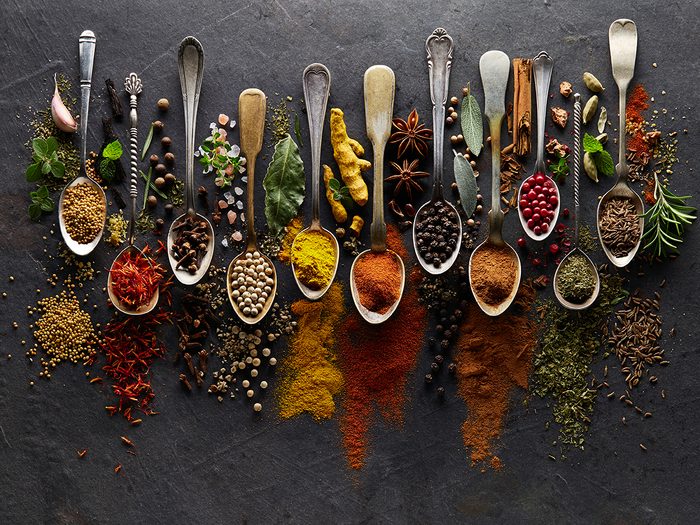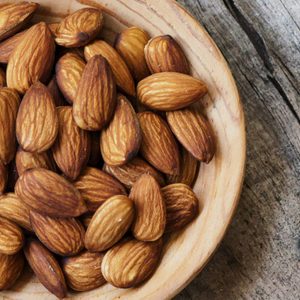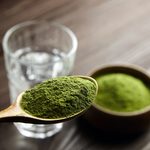The Real Difference Between Herbs and Spices

Although we rely on both as seasonings to add flavour to food, there are key distinctions in how they're stored and when they should be added in the cooking process.
Herbs and spices have the ability to take your taste buds around the world. Just by changing the flavourings, you can transform your recipes from ordinary to exotic. Though herbs and spices have been around for hundreds of years, the science to support the health benefits they afford is more recent. Still, various cultures have long recognized that these seasonings provide more than just flavour to food.
Flavour is even more essential when you are trying to reduce dietary fat and salt. (Many health experts suggest we cut down on the amount of salt in our food as a way of preventing high blood pressure and other conditions that can affect the heart.) Adding herbs and spices to recipes adds great flavour without increasing the amount of fat you consume—and without tacking on a significant number of calories. Plus, it’s a tasty way to reduce the amount of salt or sodium that you normally use in cooking. (Learn to spot the signs you’re eating too much salt.)
What’s the Difference Between Herbs and Spices?
Herbs and spices are often defined as those parts of the plant used in the diet for their aromatic properties. The difference between the two is which part of the plant each comes from. Herbs (for example, basil and thyme) are the leaf of the plant. Spices are the plant’s buds, bark, roots and seeds (for example, cloves, cinnamon, ginger and coriander, respectively).
Fresh herbs make food taste like summer, whereas dried herbs have a wintry taste. Fresh leafy herbs are usually added at the end of cooking. And since their flavour is delicate, use lots.
When using dried herbs, however, be prudent—their flavours are concentrated. Add them at the start of cooking, to reconstitute them.
Tips For Buying and Storing Herbs and Spices
When buying fresh herbs, choose those that are bright in colour, with no signs of wilting or browning. The stalks should be crisp and the leaves should not be dried out, nor should they have yellow, brown or black spots.
Fresh herbs should have a clean, fresh fragrance. It’s best to buy them close to the time that you plan to use them.
Wash the herbs under cool running water; then pat them dry, wrap them in tea towels and store them in the refrigerator in sealed containers or plastic bags. Once washed and patted dry, they can also be frozen in freezer bags.
Spices (almost always dried) lose much of their flavour within a year of being ground, so buy them in small quantities and replace them every year or two. For spices such as pepper and nutmeg, it makes a big difference to grind them as you need them, so be sure to have a good pepper grinder. A rasp works very well if you buy whole nutmeg.
Store spices and dried herbs in airtight containers, and place these in a cool, dry, dark place, away from light and heat.
Now that you know the difference between herbs and spices, find out the 20 foods you should never store in the fridge.






